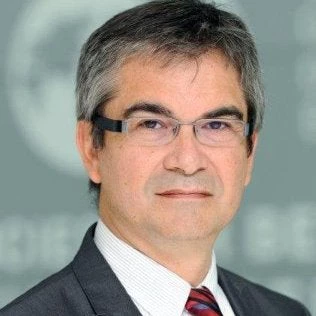One trillion dollars. That’s a big number. It’s hard to ignore.
One trillion dollars, according to estimates by Global Financial Integrity, is the amount lost every year by developing countries through illicit financial outflows connected to trade mispricing, bribery, theft, kick-backs, tax evasion, organized crime, and trafficking of drugs, weapons, and humans. This means that for every one US dollar developing countries receive in external assistance, ten US dollars are lost to illicit financial flows (IFFS). These estimates should be treated with caution—it is difficult to measure what is designed to remain hidden. But even if we accept that these estimates are uncertain, no one doubts that IFFs are huge.
IFFs drain hard currency reserves, heighten inflation, reduce tax collection, discourage investment, and weaken free trade. These practices stifle poverty alleviation efforts, undermine the integrity of government, and damage the foundations of society.
At a recent panel on IFFs during the WBG/IMF Annual Meetings, President of Global Financial Integrity Raymond Baker called IFFs “the greatest economic impediment to sustainable development” and appealed for action: “Curbing illicit financial flows must become a priority within the sustainable development goals (SDG) agenda. This is at the heart of the systemic causes of poverty and inequality affecting billions of people around the world.” Danish Minister of Trade, Development and Cooperation Mogens Jensen and State Secretary of the Norwegian Ministry of Foreign Affairs Hans Brattskar echoed this call for action and their countries’ readiness for continued support for combating IFFs.
As the head of the World Bank Group’s governance agenda, I couldn’t agree more. Good governance cannot flourish in environments plagued by illegal practices and dirty money. This diversion of funds and domestic revenue deprive citizens of resources needed for urgent public needs and civic priorities; in turn, these losses negatively impact jobs, growth, and shared prosperity.
In the debate over the post-2015 SDG agenda, the UN has created a working group that is proposing a target for the reduction of IFFs. We welcome this discussion as well as the forthcoming report of the high-level panel on IFFs (chaired by His Excellency Thabo Mbeki, former president of South Africa) which will identify trade mis-invoicing as the most common means of shifting illicit money out of Africa and recommend steps to combat this practice.
These discussions will culminate next July at the UN conference on Financing for Development in Addis Ababa. The challenge of this conference will be to find ways to mobilize and maximize domestic resources while also strengthening overseas development assistance to turn the tide on illicit flows.
At the WBG, we’re supporting client countries’ efforts to combat IFFs by capacity building and strengthening safeguards on financial integrity, contracting, financial markets, and public sector management. We’re helping to increase stock transparency, fight corruption, crack down on money laundering, and recover stolen assets. By leveraging our convening power, we aim to build a broader global consensus around the IFF agenda that also includes issues related to tax enforcement, beneficial ownership, extractive industry integrity, and open and accountable government.
During the Annual Meeting IFF panel, the Governor of the Central Bank of Bangladesh, Mr. Atiur Rahman shared the exciting story of Bangladesh’s transformation in their fight against IFFs. Thanks to prudent fiscal policies, digitization of payment systems, and even-handed, nonpartisan use of cross-border cooperation for stolen asset recovery, Bangladesh has significantly raised domestic resource mobilization at every level. Technical assistance from World Bank resident advisors have helped redesign and revise anti-money laundering laws, and the US Justice Department has given Bangladesh practical support in recovering stolen assets.
“But ultimately,” Rahman said, “the onus lies on us– we need to improve the quality of the institutions dealing with these kinds of activities.”
Rahman provided some impressive numbers– results from Bangladesh’s real political will to commit to change: over the last five years, investment has doubled to $14.2 billion, making Bangladesh seventh in the world in terms of investment-recipient countries. The improvement in the banking system has helped to more than triple their reserve in five years from $6.5 billion to $22 billion. The money continues to come in with 6% growth and Bangladesh is the only country in the region with an account surplus. Poverty has been reduced and life expectancy has increased to 70 years, which is at least 4 years higher than their neighbors.
Countries around the world can learn from this and other positive experiences, but much work needs to be done to strengthen the global networks and cooperation necessary to push the IFF agenda forward.
As we move towards 2015, let’s heed the call to reverse the trillion dollars in losses that should be rightfully spent on the needs of citizens.



Join the Conversation